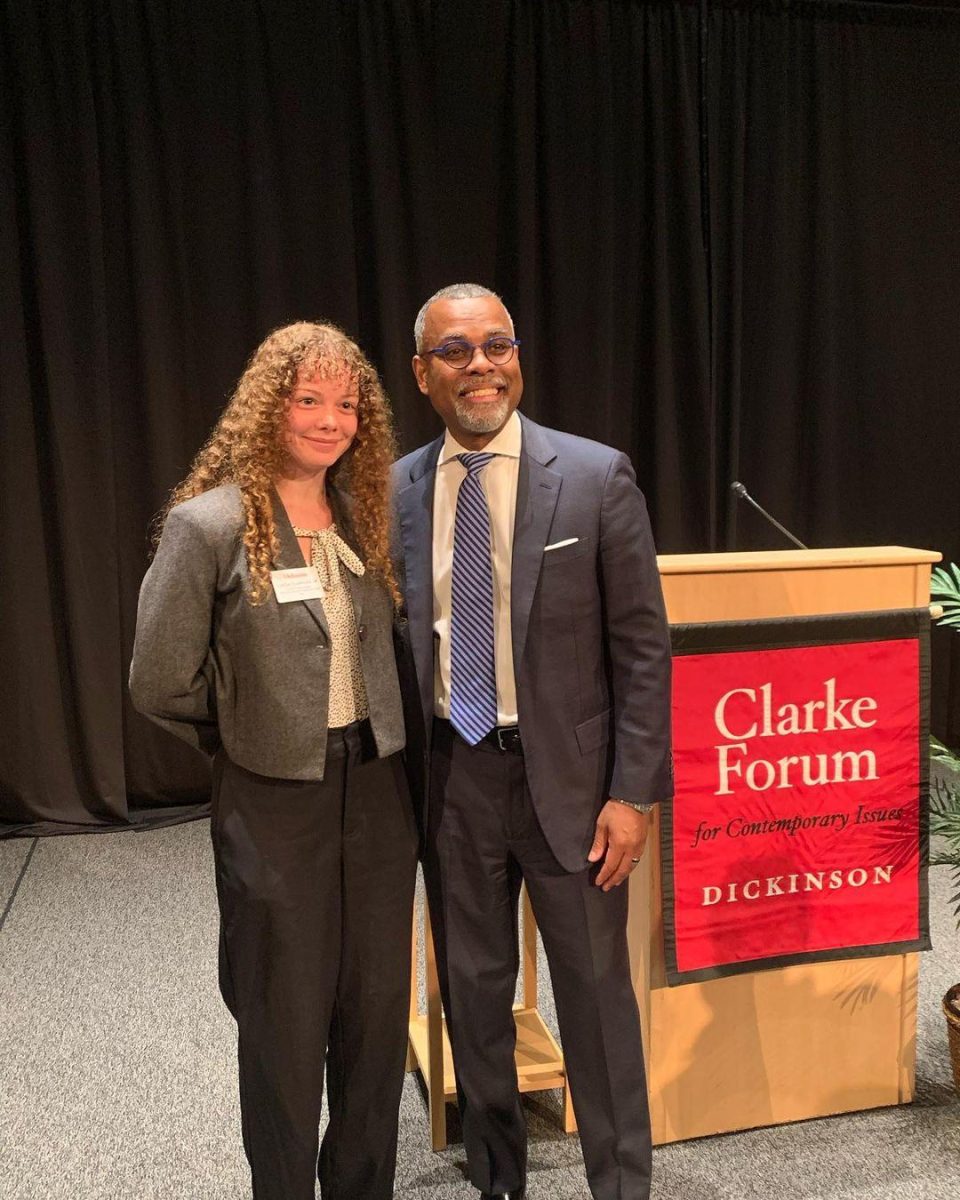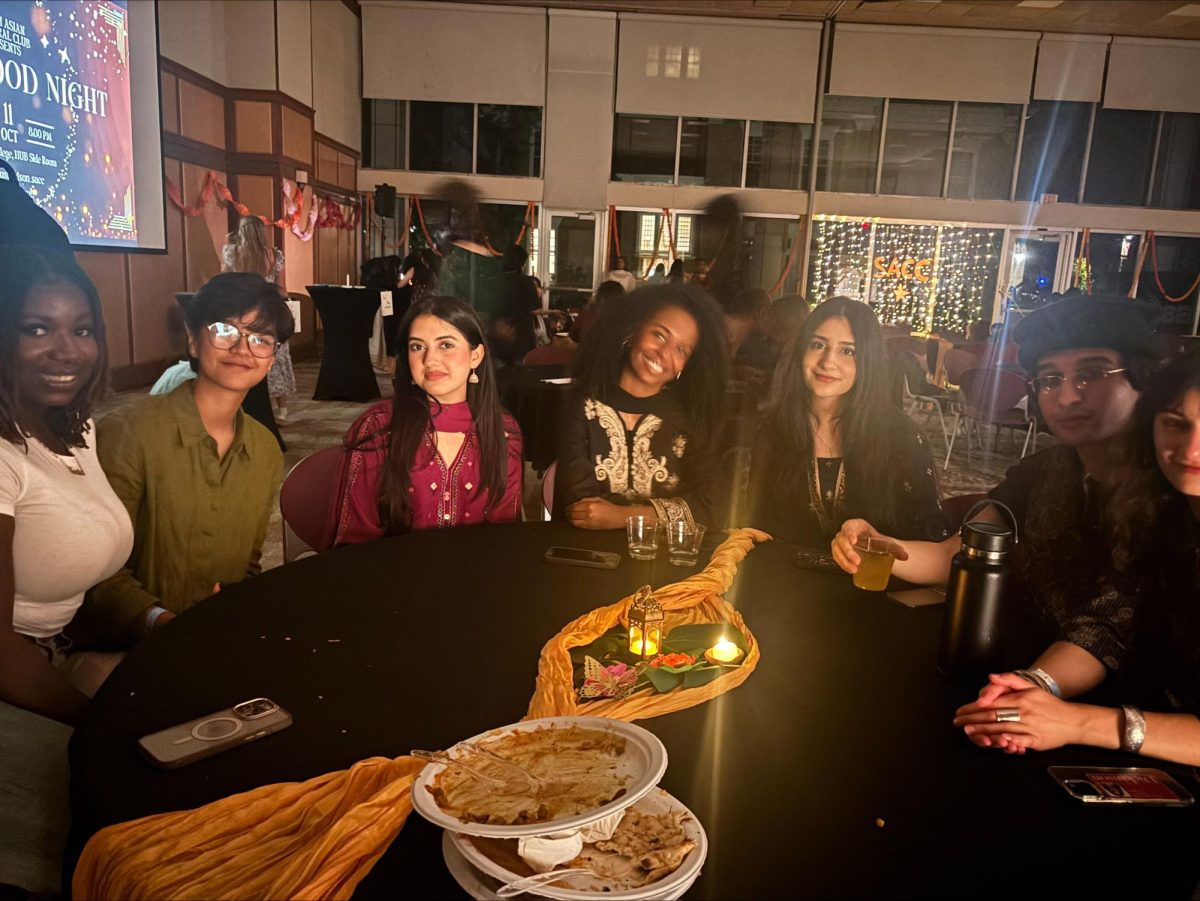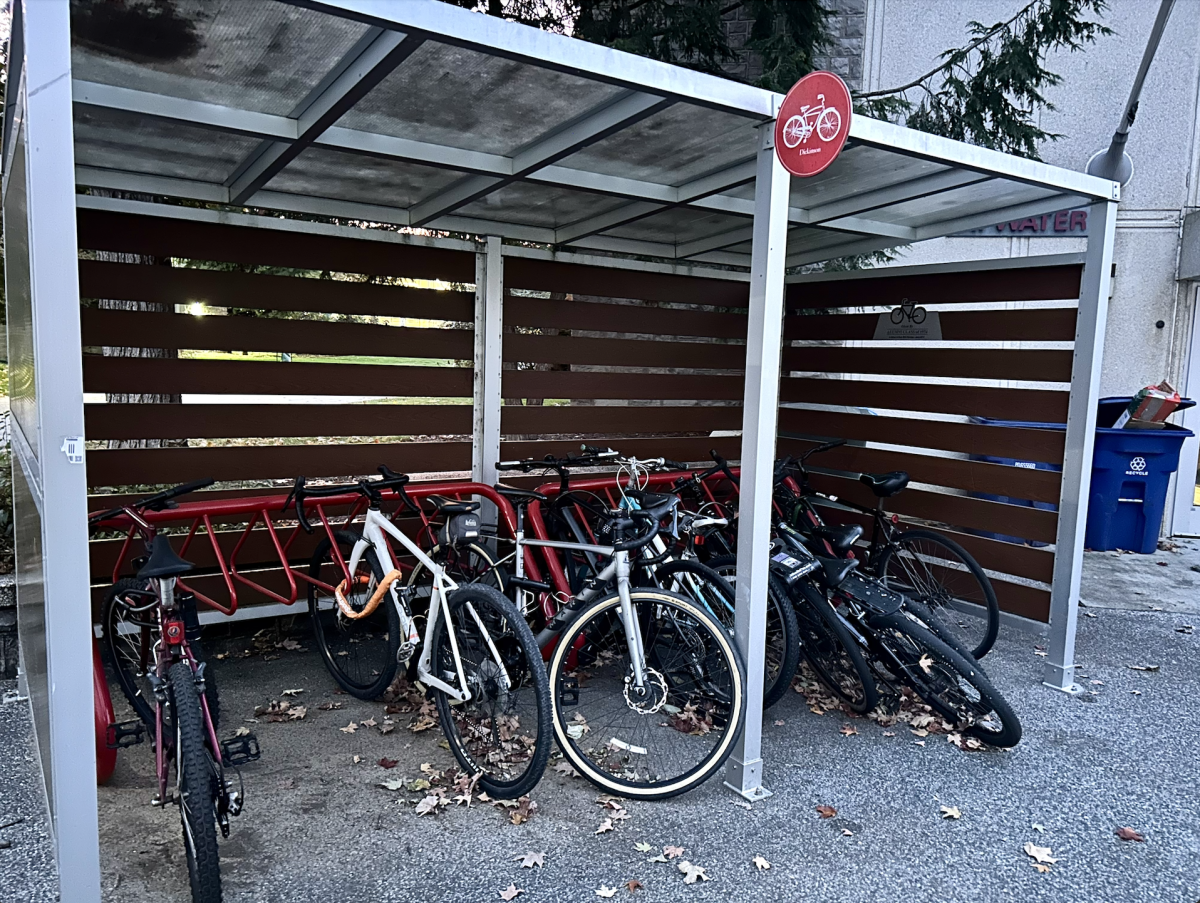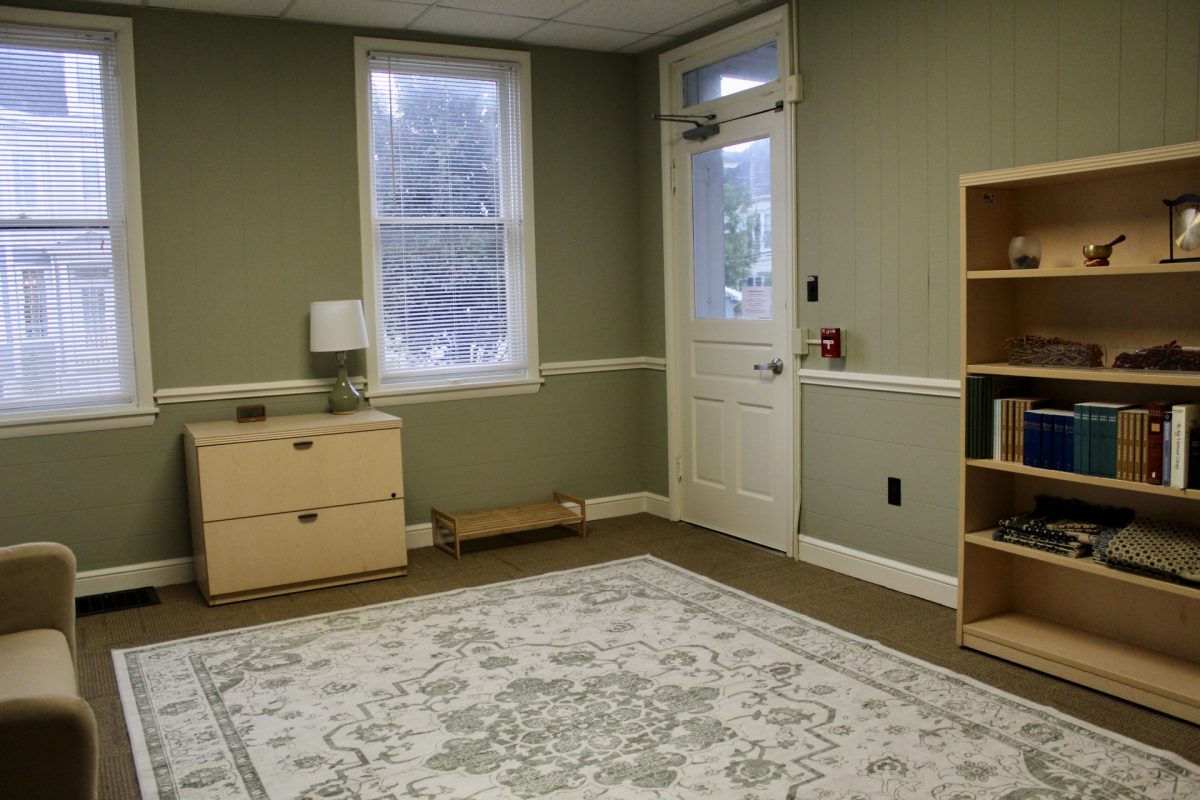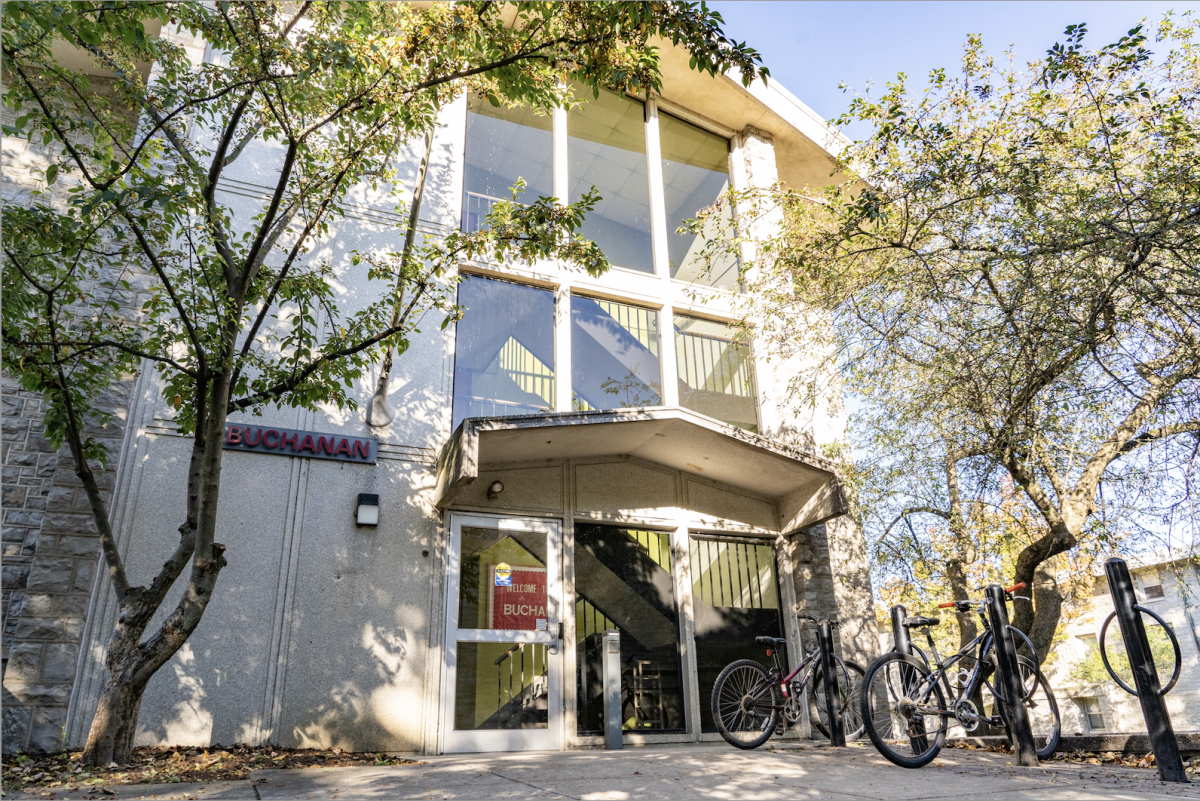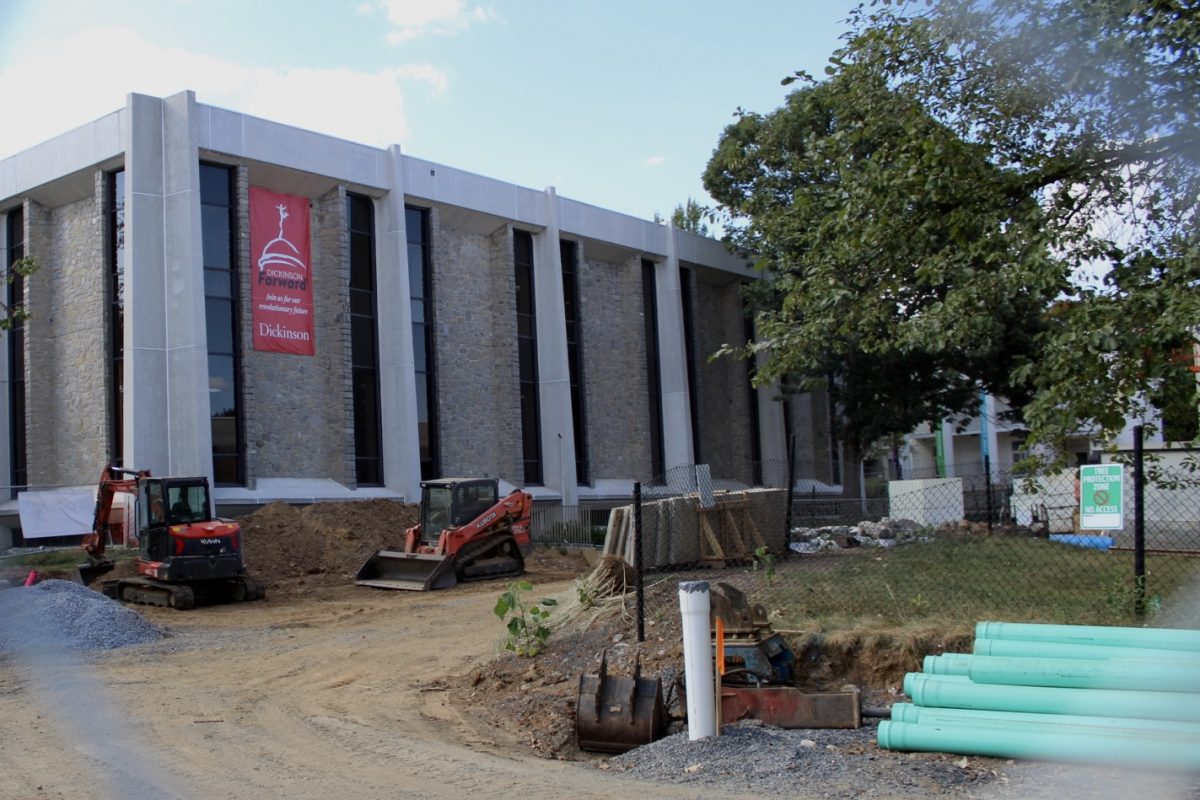*IMAGE (ClarkeForum) – Student Project Manager Layla Ilarraza ’26 poses for a photo with Eddie Glaude Jr., who delivered this year’s Black History Month keynote talk.*
“The horror is that America changes all the time without ever changing at all,” James Baldwin once said, but Eddie Glaude’s recent Black History Month keynote, “The Ethics of Anti-Racism,” challenged attendees to create real change.
Glaude defined anti-racism as a process to achieve human decency. He is a professor of African American Studies at Princeton University, as well as an acclaimed author and political analyst.
Glaude said that the U.S. is undergoing a cultural and political shift wherein people are willing to discard the experiment upon which this country is founded. America’s problems, he said, stem from the concept of the “value gap,” the idea that certain people are more important than others, which results in the inequitable distribution of resources in society.
Glaude explained that from an early age, we learn racial habits, or social codes which preserve the value gap and prevent change. Through the value gap, marginalized people are forced to exploit the earth, a system which created climate change.
Even Abraham Lincoln believed in the “value gap,” Glaude argued, and though he abolished slavery in name, he failed to emulate the attributes which people need to create a democracy.
Frequently citing famed American authors and civil rights activists like Baldwin and Dr. Martin Luther King Jr., Glaude linked his own oratory style to his Black intellectual forbearers when he compared his lecture to a church sermon. Rather than standing behind the dais and pointing at the projector, he moved around the floor towards the audience.
Though the lecture was somber, there were moments of laughter, and sounds of affirmation from the crowd.
The issue is that we cling to the past, in a state of “perpetual adolescence, or madness,” Glaude said. “We must accept who we are and what we’ve done in order to be better. The trouble is in us,” he explained. Glaude said the infamous question, “What does the Negro want?” reveals the white questioner’s anxiety in the face of change and their presumptions about Black people. “We want the same damn things as any human,” Glaude answered.
Some people in the U.S. describe diversity as a drain on material resources, but in truth, Glaude explained, it is a gift, not something that should be controlled.
Glaude said that forwarding an antiracist agenda is every person’s duty. To students looking to hold Dickinson accountable, Glaude emphasized they must understand institutions as structures that seek to maintain their own power.
Despite the trials of anti-racist activism, Glaude offered a hopeful lesson from Baldwin. “Not everything that is faced can be changed, but nothing can be changed until it is faced.”
“It was interesting to get a take on the connection between ethics and environmental racism,” one student said after the lecture. “It was really powerful what he said about accepting what we’ve done to move on or else our efforts will not be genuine,” another student explained.
Glaude’s final advice to students is to “learn how to be a decent person,” to pave the way for the change that Baldwin did not get to see.



